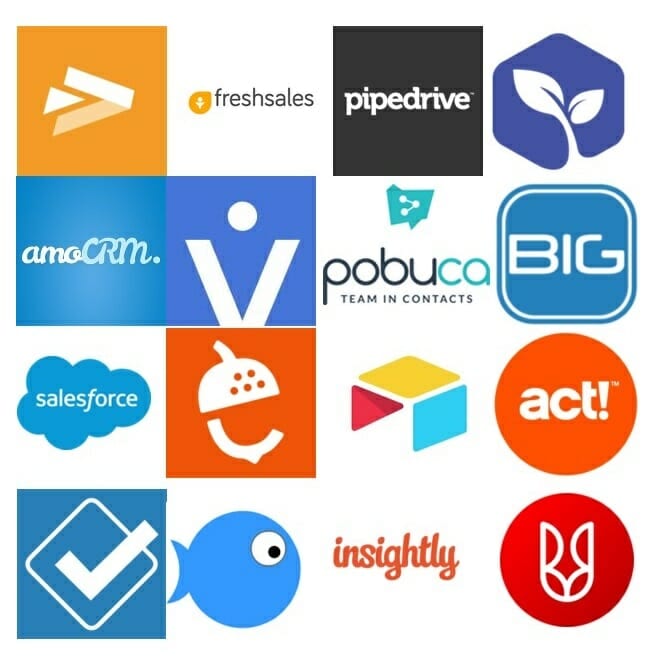Cheap Contact Management Software | Compare Costs and Options
The Ultimate Guide to Contact Management Software
The right contact management software can revolutionize your business. Here's what you need to know about what it is, how it works, and how to get a great solution at a cheap cost.
Don't know much about contact management software?
You're not the only one. 22% of salespeople still don't know what this type of software is meant for. 40% still use traditional methods to keep track of client interactions (think spreadsheets and sticky notes).
The crazy thing is contact management (CM) software (and its heartier cousin, CRM software) gives an average ROI of $8.71.
If you want to save time, streamline your customer-contact interactions, and receive a healthy ROI, then invest in CM software.
In this article, we'll give you a closer look at what it is, how it works, and how much it costs. Read on to discover how to fit it into your marketing strategy.
What It Is Contact Management Software – CRM

At its core, contact management software is a database. Businesses use it to track and store customer contact information. It stockpiles names, phone numbers, addresses, and social media information.
On some CM software, you can even store essential documents with contact profiles. That way, all the material you need is on hand, at a glance.
Businesses use it to streamline their communications. The database makes searching a breeze.
This software is designed to increase efficiency. It consolidates critical customer information. Then it's available to anyone on your team, anytime they need it.
You avoid confining valuable information in a team member's inbox or address book. Everyone can stay up-to-date with the most current customer data.
How Affordable Contact Management CRM Works
First, you buy your contact management software. Almost all available CM software is hosted online. Some companies need you to download a locally-stored component. Most don't.
After you set up your account, you'll receive your username and password. Next, you jump online and log in to your CM. It's as simple as that.
Web-Based
The software will give you (and your employees) access to your contact information. Anytime, anywhere with an internet connection. All you need is a mobile-ready device. Smartphones, tablets, laptops, desktops–they'll all work.
With a web-based CM system, you won't need to worry about losing or destroying paper documents. All your information is stored offsite.
What if the data on those servers is destroyed?
Don't worry; your CM provider has backup servers too. Web-based software is quite safe in 2020.
Cloud-based software makes sharing contact information a simple matter. That's convenient when you work in a recruiting network, such as when you make split placements. Collaboration is a breeze.
Automated Reminders
 Contact management software comes equipped with automated reminder tools. It's easy to lose track of events, even if you keep them on your mobile calendar. CM software will alert you to upcoming events or communications.
Contact management software comes equipped with automated reminder tools. It's easy to lose track of events, even if you keep them on your mobile calendar. CM software will alert you to upcoming events or communications.
If you use it strategically, you can also use these reminders to reconnect with customers, so you don't lose touch.
It'll help you rank your relationships according to how much time has gone by since you last spoke.
You can also use this handy tool to nail your campaign timelines. When was the last time you emailed your client? Did someone else on your team contact that client more recently? What step has your client reached in his buyer's journey?
Most importantly, how soon can you contact him to help him into the next stage of his buyer's journey?
Review Past Conversations
In any business, building long-term relationships is paramount. Contact management software gives you the tools for you and your team to create a running history. Who did you speak to? When? What did you talk about? What notes did you take during the conversations?
If you've been around long enough, you remember the sticky-note jungle that was your desk. You remember how easy it was to lose…well…everything?
With CM software, it's all in one place. You can rehash old conversations and reflect on better ways to suit your client's needs. You can view open quotes, sales records, and job orders. This ability will give you the instruments necessary to nurture your relationship.
It'll also give you the ability to focus your marketing campaigns. You can target people based on specific details you picked up in past conversations.
For instance, in your next email blast, you can break your clients into three groups. Use the information you garnered from your past communications. Split your contacts into dog-lover, cat-lovers, and unsure.
For the dog-lovers, your email will include a brand-tailored photo of a dog; for cat-lovers, a cat. So on and so forth. You get the idea.
Use your past conversations to refine and target your marketing campaigns.
CM vs CRM
There's a difference between contact management software (CMs) and customer relationship management systems (CRMs). CRMs include a suite of software. CMs are one of the software tools included in this suite.
With so many types of CMs and CRMs available today, the distinction between the two is becoming vague. If you can't tell the difference by comparing features, you can usually distinguish them based on price.
How Much Contact Management Software Costs

Contact management software falls into two distinct categories. Most prices a bargain deals and don’t cost too much. One requires a monthly subscription fee. The other requires full payment upfront and no subscription.
The full-payment type usually costs $1000 or more. This includes free updates and no extra charge for multiple users. It's a great option if you already know you love the software, and you have a large team.
The monthly-subscription type always includes various plans. The plans change according to these common factors. A number of databases, records, users, and size of storage.
Each type of software is unique. Most include other factors. ( Think third-party app integration, email options, calendar options, metrics, etc.)
Remember, there's often some crossover between CMs and CRMs.
Most CMs offer a free (or trial) version with limited options. The upper price boundary is around $60 per month per user. This structure works well for smaller businesses and smaller teams.
How to Find Your Contact Management Software

Now that you know what CMs have to offer, what do you do next?
Go back through this article, and write down every critical feature you need in your CM. Then jot down any features you'd like, but didn't notice.
After you finish, compare rates of CMs and other business products online. Keep your features-list handy. Then you can weigh similar types of software against one another. Ready? Then go compare rates.